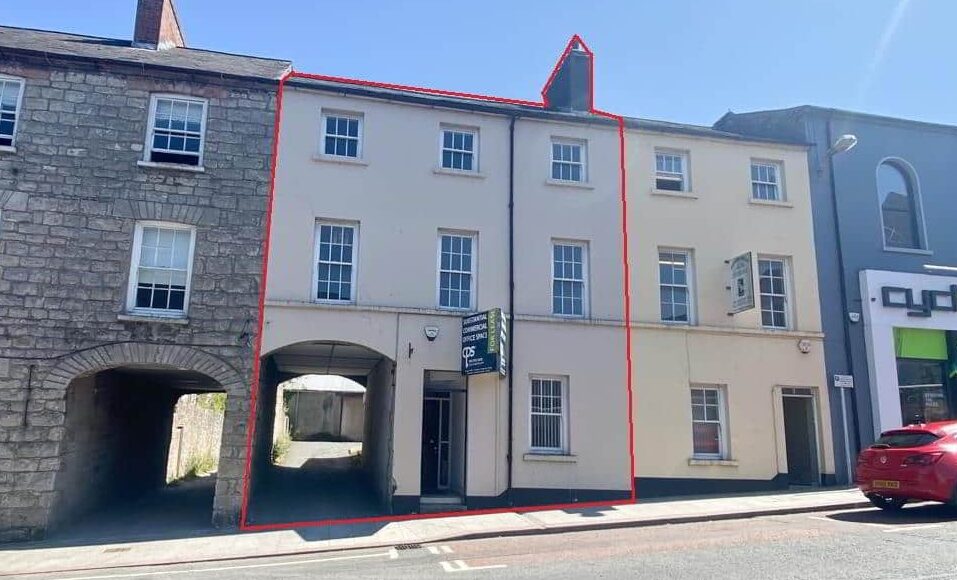
A former solicitor’s premises in Armagh is to be converted into apartments as ongoing attempts to let as office accommodation proved fruitless.
The property – at 7 College Street – is understood to have been built some time between the 1840s/50s.
And now a listed building consent has been lodged with Armagh City, Banbridge and Craigavon Borough Council.
A change of use is being sought to allow the applicant, Patrick Campbell, to convert it from offices to apartments.
If successful, a total of three self-contained apartments would be created, with the partial demolition of an existing store planned to create a communal amenity area.
The historic building had been used as a solicitor’s office – the Pat Finucane Centre – until around June 2020.
According to a design and access statement, a change of use is the only option to be explored at this stage.
It states: “Despite being on the market for existing office use since, no suitable office tenancy has been forthcoming.
“One major issue highlighted was the difficulty of less-abled members of the public being able to climb the existing ‘winding’ stairs for consultations.
“The stair design is one of the original design features of the property and it was decided to convert/change the use of the building to three apartments over the three floors which would offer a better chance of letting the building and affording better use by fewer occupants.
“The College Street area has mixed occupancy of offices and apartments.
“There is a vacant shed (not listed) in poor condition in the yard to the rear of the main building which could be used as added storage and amenity space for tenants.”
The original site once housed a coach factory. But No 7 was recorded in 1862 as being occupied by a Mary Anne Ross, who leased it from Rev Charles Carroll.
Philip Smith, an historian with the Historic Environment Division at the Department for Communities, traced the property’s history.
He states: “In 1867, the property became the meeting place for the Masonic Lodges nos.39 and 263 – in effect a Masonic Hall – serving as such until 1886, when it is recorded as a ‘Girls Friendly Lodge’, a Church of Ireland institution which offered inexpensive accommodation for girls moving from the countryside to work in the town.
“From 1891 to 1893 it was let to Charles Griffiths, after which it would appear to have been subdivided for a period and let to a succession of overlapping tenants, including William Greer and Thomas J. Newton (c.1896-c.1907), the YMCA (1899) and Mary Cooke (1902-1917), who eventually became the sole occupant.
“Rose Gorman is listed as the householder from 1917 to c.1927 followed by Joseph Gray, who I believe was a haulier and who converted the store to a garage.
“I’m not certain but I think the property may have been acquired by a family named Guy c.1940, remaining with them until at least 1977.
“It appears to have become a solicitor’s office c.1980s.”
Pre-application discussions and site visits have already taken place.
And the design and access statement indicates that the proposals will be in keeping with the property and its surroundings.
It explains: “By sensitive reconfiguring of the spaces to provide the change from offices, there will be no change to the existing external appearance of the main building.
“The main staircase remains, and minimum (reversible) intervention is required for some minor wall and door openings – below ceiling level – to provide new layouts for each apartment.”
Each of the three proposed apartments would consist of a single bedroom, bathroom, kitchen and living room area.
The proposals will now be advertised shortly.



